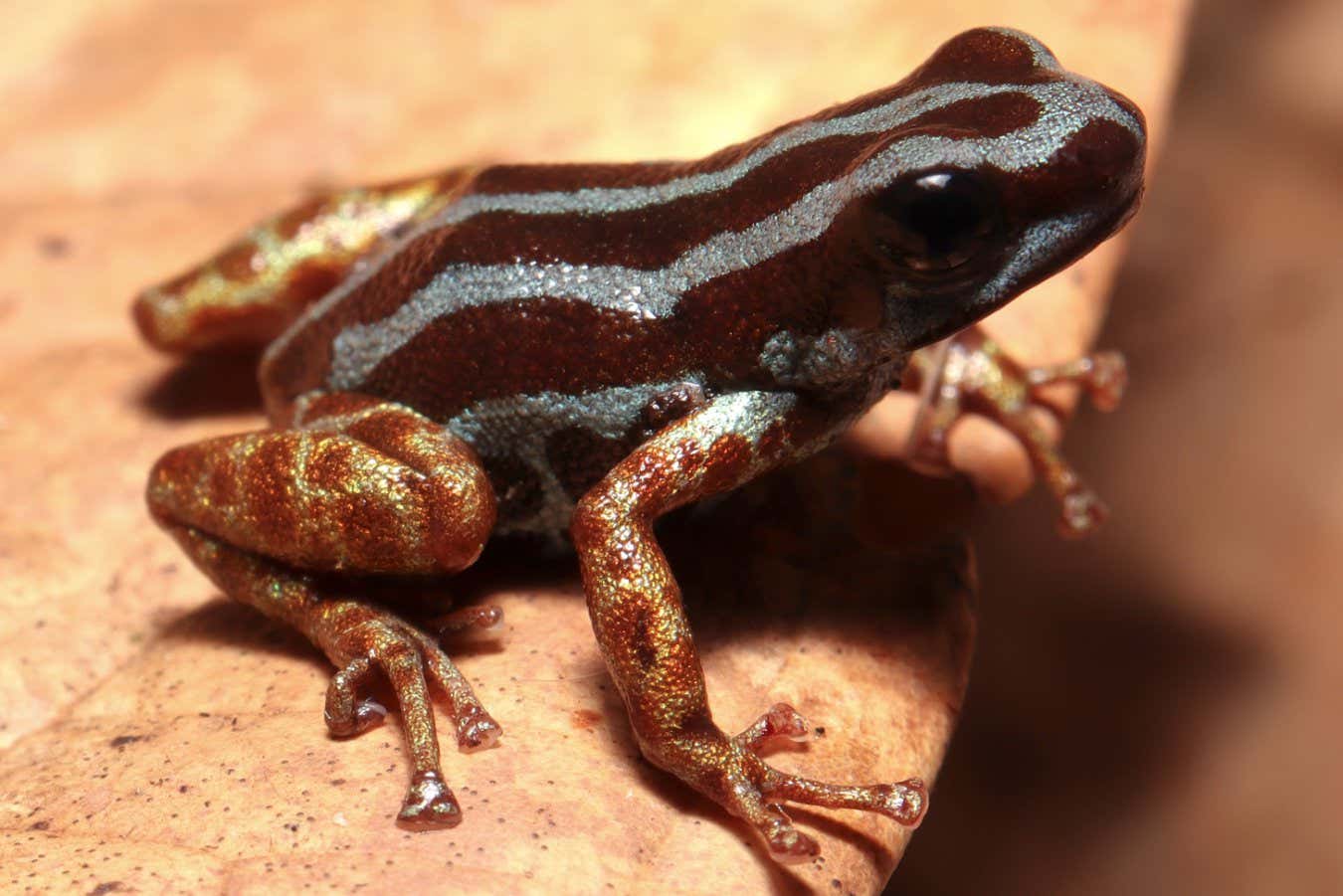Now Reading: Newly Discovered Frog Species Stands Out with Golden Legs and Unique Traits
-
01
Newly Discovered Frog Species Stands Out with Golden Legs and Unique Traits
Newly Discovered Frog Species Stands Out with Golden Legs and Unique Traits

Quick Summary
- A new species of poison dart frog called Ranitomeya aetherea has been discovered in the forests of the Juruá river basin in Brazil.
- The frog is brightly colored, with blue stripes and golden legs, and is very small (14-17 millimeters long).
- Researchers observed unique parental care habits: eggs are laid singly in water-filled cavities of palm-like plants (Phenakospermum guyannense), and tadpoles may be fed unfertilized eggs by females for sustenance.
- The team has not determined the population size, nor whether the species is endangered.
- Deforestation occured in this area during surveys conducted between 2023 and 2024, posing potential risks to this habitat-dependent species.
!campaign=RSS%7CNSNS&utmsource=NSNS&utmmedium=RSS&utm_content=home”>Read More
Indian Opinion Analysis
The discovery of Ranitomeya aetherea underscores the biodiversity challenges faced globally and reminds us why conservation efforts are vital.India can derive vital insights from this research as biodiversity hotspots like India’s Western Ghats face similar threats due to habitat degradation. Dependence on specific plants (as seen with this frog’s reliance on Phenakospermum guyannense) highlights how ecosystem disruptions-including deforestation-can rapidly endanger localized species.
For India, safeguarding its fragile ecosystems while allowing development needs careful balancing. Collaborative field research initiatives akin to those by Brazilian teams can guide India’s own conservation strategies for lesser-known endemic species threatened by deforestation or climate impacts. by learning from global case studies like these frogs’ plight, proactive measures coudl protect India’s vast but vulnerable ecological treasures.






















